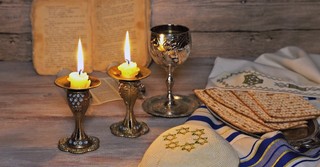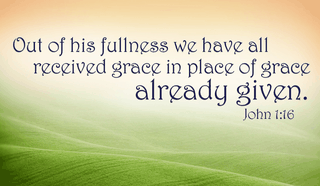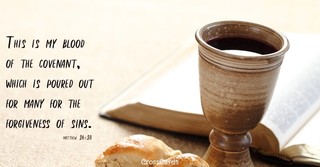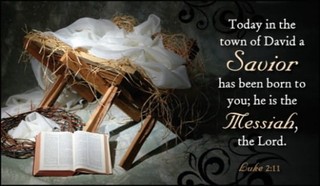What is Passover in the Bible?
Passover, also known as Pesach in Hebrew, is a significant Jewish festival commemorating the Exodus of the Israelites from slavery in Egypt, as narrated in the Bible. The story of Passover is primarily found in the Book of Exodus, particularly in chapters 12 through 14.
According to the biblical account, God commanded Moses to tell the Israelites to mark their doorposts with the blood of a slaughtered spring lamb. This sign would cause the spirit of the Lord to pass over these homes during the final plague, the killing of the firstborn of Egypt. This event prompted the Pharaoh to release the Israelites from bondage, leading to their dramatic escape from Egypt.
Passover is celebrated for seven or eight days (depending on the tradition), and it begins with the Seder. This ritual meal includes the reading of the Haggadah (a text that recounts the story of the Exodus), eating matzah (unleavened bread) and bitter herbs, and drinking four cups of wine. These elements serve as symbols of the suffering and the subsequent liberation of the Israelites.
The festival is deeply rooted in themes of redemption and freedom, and it has been observed by Jewish communities worldwide for thousands of years. Passover also has significance in Christian traditions, where it is seen as prefiguring Jesus Christ's last supper, crucifixion, and resurrection.
Passover in the New Testament
In the New Testament, Passover gains an added layer of theological significance as it is intricately linked to the events of Jesus Christ's last days, crucifixion, and resurrection. Passover is explicitly mentioned in the context of the Last Supper Jesus shared with His disciples, which is described in the Synoptic Gospels of Matthew, Mark, and Luke. This meal is considered by many Christians to be the first Eucharist, where Jesus took bread and wine and gave them new meaning as His body and blood, symbolizing the new covenant.
For instance, in Luke 22:15-20, Jesus says to His disciples during the Passover meal, "I have eagerly desired to eat this Passover with you before I suffer. For I tell you, I will not eat it again until it finds fulfillment in the kingdom of God." Then He took bread, and when He had given thanks, He broke it and gave it to them, saying, "This is my body given for you; do this in remembrance of me." In the same way, after the supper He took the cup, saying, "This cup is the new covenant in my blood, which is poured out for you."
These events during the Passover underscore the Christian belief that Jesus is the Lamb of God, whose sacrificial death was prefigured by the lamb's blood used by the Israelites to save their firstborn and ultimately gain freedom from Egypt. The Gospel of John emphasizes this connection by aligning the timing of Jesus' crucifixion with the preparation of the Passover lambs, deepening the symbolism of Jesus as the ultimate and final Passover lamb, whose sacrifice delivers believers from the bondage of sin.
Top Passover Bible Verses
1 Corinthians 5:7 - Cleanse out the old leaven that you may be a new lump, as you really are unleavened. For Christ, our Passover lamb, has been sacrificed.
Leviticus 23:4-8 - “These are the appointed feasts of the Lord, the holy convocations, which you shall proclaim at the time appointed for them. In the first month, on the fourteenth day of the month at twilight, is the Lord's Passover. And on the fifteenth day of the same month is the Feast of Unleavened Bread to the Lord; for seven days you shall eat unleavened bread. On the first day you shall have a holy convocation; you shall not do any ordinary work. But you shall present a food offering to the Lord for seven days. On the seventh day is a holy convocation; you shall not do any ordinary work.”
Exodus 12:21-28 - Then Moses called all the elders of Israel and said to them, “Go and select lambs for yourselves according to your clans, and kill the Passover lamb. Take a bunch of hyssop and dip it in the blood that is in the basin, and touch the lintel and the two doorposts with the blood that is in the basin. None of you shall go out of the door of his house until the morning. For the Lord will pass through to strike the Egyptians, and when he sees the blood on the lintel and on the two doorposts, the Lord will pass over the door and will not allow the destroyer to enter your houses to strike you. You shall observe this rite as a statute for you and for your sons forever. And when you come to the land that the Lord will give you, as he has promised, you shall keep this service. ...
Matthew 26:26-28 - Now as they were eating, Jesus took bread, and after blessing it broke it and gave it to the disciples, and said, “Take, eat; this is my body.” And he took a cup, and when he had given thanks he gave it to them, saying, “Drink of it, all of you, for this is my blood of the covenant, which is poured out for many for the forgiveness of sins.
Exodus 23:15 - You shall keep the Feast of Unleavened Bread. As I commanded you, you shall eat unleavened bread for seven days at the appointed time in the month of Abib, for in it you came out of Egypt. None shall appear before me empty-handed.
Numbers 9:14 - And if a stranger sojourns among you and would keep the Passover to the Lord, according to the statute of the Passover and according to its rule, so shall he do. You shall have one statute, both for the sojourner and for the native.”
Mark 14:12-25 - And on the first day of Unleavened Bread, when they sacrificed the Passover lamb, his disciples said to him, “Where will you have us go and prepare for you to eat the Passover?” And he sent two of his disciples and said to them, “Go into the city, and a man carrying a jar of water will meet you. Follow him, and wherever he enters, say to the master of the house, ‘The Teacher says, Where is my guest room, where I may eat the Passover with my disciples?’ And he will show you a large upper room furnished and ready; there prepare for us.” And the disciples set out and went to the city and found it just as he had told them, and they prepared the Passover. ...
Learn more about Passover at: What is Passover? Understanding the Important History and Christian Traditions
Photo credit: ©GettyImages/photovs







